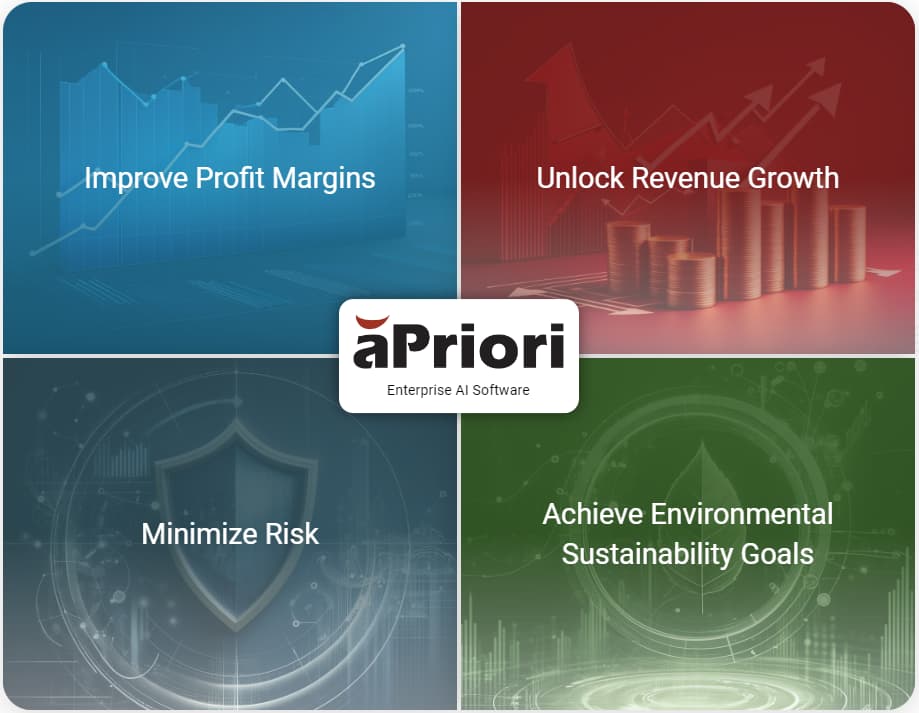May 8, 2025
Database Technology to Improve Financial KPIs

Transcript
When it comes to systems of data capture and analytics, most analysts give the manufacturing industry poor performance scores. Sme say that manufacturing lags 5, 10, or even 20 years behind other industries when it comes to the effective use of data and database infrastructure. What can manufacturing do to close the gap? And how can better use of data help manufacturers reach their financial targets in this economy?
The expert on this topic is Alex Ladd, CEO of MindStream Analytics. His strategic direction has guided organizations such as Bayer, Boston Scientific, and Sara Lee to get the insights they need to achieve their competitive financial targets.
How Has Database Technology Changed?
Alexander Ladd: There have been huge changes in technology in the past years, especially when it comes data. The amount of data today is so much more than it was before. I’m not sure how many people are familiar with things like OLAP and cubes. They started as the ability to roll up and aggregate a bunch of data so that you could cut it and do some deep analysis on it. But then maybe 10 years ago, you started adding the ability for better integration between those cubes – what I would consider to be like a relational database for the more detailed data levels. And so now the interaction between the two is much stronger. And then within the last five years is what I would consider to be more like machine learning start to come in.
So the progression of database technologies for manufacturers was: you could start to roll up your data into kind of a cube and that would give you some insights into where you might have issues, wand here you could drive some efficiencies. But then the next question is how do you fix those issues? Because you’ve got to drill down on exactly each individual piece that’s causing those problems to get to the potential fixes.
Operational Metrics and Financial Metrics Need to Be Connected
Leah Archibald: Is manufacturing behind other industries in the use of new database technology?
Alexander Ladd: It’s funny because when you get into the operational side you do see a lot of high-tech manufacturing going on. There is a lot of use of AI in the manufacturing process, but not necessarily in the analytics component. Corporate performance management starts in the office of the CFO. And when you go to steel manufacturers, those companies in the office of the CFO are coming out of Excel.
Leah Archibald: So there’s a disconnect that you’re seeing between the high-level corporate financial performance metrics and the operations. And that’s really what needs to be bridged to get the ROI out of the whole infrastructure.
Alexander Ladd: You don’t always see that companies have a good ROI measurement, and that goes back to integrating the operational data with the financial data. They will say something like, “Oh, we bought a new tool that will increase our efficiency,” but what is the ROI on that? How does that factor into a product’s overall cost? Without integration of the operational and the financial data, most organizations don’t know.
Leah Archibald.: What does a good solution look like?
Alexander Ladd: You’ve got to be able to ingest all the data. And data ingestion comes with a lot of problems in and of itself. They talk about quality: data quality instead of data integration. And I think it’s a valid point because there are tons of companies that say they have data integration between all these systems, but they also have a team of 30 people that sits around and fixes all the data integration problems.
And then the next thing is: can you roll up the data in a way that everybody agrees is meaningful? People talk about master data management and things like that. Do we all agree on: this is one product family, this is another product family. And then my biggest thing is: can the system be something that can present back the data to every level at the appropriate level of granularity and that the message matches all the way up and down?
Data is the beginning of the story, but to have something that’s meaningful, you have to be able to tell the story. And if you have a good tool that can tell the story, that’s something that is just hugely important. You have to be able to lay it out in a way that’s meaningful for each person. So every different department, every different role within the organization, needs to understand it as it’s pertinent to them.
Relating Operational Performance to Financial KPIs
Leah Archibald: This is something that financial services companies do really well. How can manufacturers use their data to get critical information on financial KPIs?
Alexander Ladd: As far as particular insights, we talk about rolling up data, but you should also be able to roll up your KPIs. Those top-level KPIs – that’s your unifying piece. What are all of your KPIs, and how do they flow up and down this organizational chart? If you’ve really done the analytics, then you have deployable KPIs that every person in the organization can see, check, and know it’s right.
Leah Archibald: Does AI fundamentally change this process?
Alexander Ladd: AI changes our job in that we should be able to put the solution into effect more quickly. It also enables us to go further. And the other thing about AI that people don’t talk about as much is really around change management. As you get these tools, one of the big stumbling blocks is always getting people to learn how to use them. AI can speed up the learning process, so you don’t have to sit down and spend three days learning how to use a new piece of software. Which means AI can make it easier for us to adopt these new systems.







